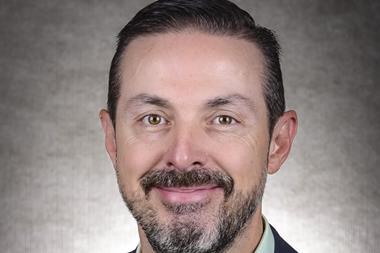Germany’s law on control and transparency in business, KonTraG, requires the board members of a stock company ‘to ensure appropriate risk management and the establishment of an internal control system, so as to be able to recognise as early as possible developments jeopardising the continuing operations of the company,’ as a paper from consultants Arthur Andersen explains.
On 8 August 2001, the German pharmaceuticals and chemicals group Bayer announced the voluntary recall of its important cholesterol lowering drug, marketed as Lipobay and Baycol. Bayer contests the causation, but a small number of patients taking the drug had suffered from rhabdomyolsis, a rare but potentially life threatening muscle weakness, and about 50 had died. The following day, Bayer reported second half profits below expectations, as falling demand for chemicals compounded the troubles facing the pharmaceuticals division. Then came 11 September.
The Bayer share price, already on a downward path from its record high of e58.00 in January 2001, plunged to a record low of e23.90 at the end of September. Bayer’s ADRs were due to be listed on the New York Stock Exchange in September; the offer was postponed until 24 January 2002.
As KonTraG requires, the board of management of Bayer has formulated a risk management system. ‘Risk management is an integral part of all decisions and business processes in the Bayer Group,’ says the company’s annual report for 2000. It states that, thanks to insurance against possible liability risks and claims, ‘we ensure that risks are kept within reasonable limits or excluded’.
Independent auditors are required to examine whether the management board has taken suitable risk management measures and to report the findings in writing. Bayer’s auditors, PwC Deutsche Revision, considered the group management report for the financial year and accepted it without objection. ‘In our opinion, the management report provides, on the whole, a fair understanding of the group’s position and adequately presents the risks related to its future development.’
Shareholder value
During 2001, Bayer issued three profit warnings. The first two in May and June resulted from production problems with the drug Kogenate. The third came with the announcement of the Lipobay/Baycol recall.
In November 2001, Bayer revealed a net loss of e183m for the third quarter. The share price, which had been recovering since September dipped again, though not so severely.
In a special edition of its shareholders’ newsletter, Bayer stated: ‘There is no doubt that the withdrawal of our cholesterol lowering drug has shaken the company and severely impacted the share price.’ The chairman of the management board, Dr Manfred Schneider, described the recall as “a surprise to us all”. He added: “It will be a difficult loss to bear.” The Lipobay/Baycol recall and Kogenate production problems will reduce the full year’s operating result by e1.4bn.
In the run-up to the ADR listing, no one at Bayer was available to discuss the Kogenate and Lipobay problems in the context of the company’s risk management policy, but Bayer’s statement of its risk management policy mentions clearly the risk of product liability claims. That must be relevant for any pharmaceutical company trading with the US.
As the journal Chemistry and Industry said: ‘It is not unusual for drug makers to withdraw products or abandon them in the development stage. So why has reaction to Baycol been so severe?’ While extending condolences to the families of the people who have died, Bayer says that it considers ‘the claims to be unfounded’ and that it will defend them rigorously.
The company told its shareholders: ‘We have been surprised by the reaction of the financial markets to the possible consequences of claims for damages, since we believe the chances of success of such litigation are over-rated.’ The market, however, had already been asked to take on board the implications of falling demand for chemicals and the problems with Kogenate. There was concern about the medium term flow of new products. The handling of the recall was criticised.
Some investors fear that global pharmaceuticals, an industry that saw enormous consolidation over the last decade, are too risky a business for a company the size of Bayer – or rather Bayer’s healthcare operation, since it is also a major chemicals company. Bayer had healthcare sales of e10bn in 2000, about one third of Anglo-American giant GlaxoSmithKline.
At the post-recall press conference, the question of whether Bayer was too small for this arena was put to Dr Schneider. “I believe that the answer to this question is no,” he replied. His view was that, had the Lipobay setback not occurred at the same time as the Kogenate problem, it would have been manageable. He went on: “I assume that we will never be faced with this situation again, where two of the cornerstones of one business group collapse at the same time, or at least collapse temporarily.”
Anthrax
The recall of Lipobay/Baycol has damaged Bayer’s earnings, but another, far more surprising event generated a large increase in demand for Bayer’s broad spectrum antibiotic Cipro – fears of a mass epidemic of anthrax in North America.
In this case, Bayer has successfully defended its right to Cipro in the face of pressure on the US government to over-ride the company’s intellectual property rights. Outspoken consumer advocates Ralph Nader and James Love wrote an open letter to the US Secretary of Health & Human Sciences (DHHS) advocating the generic production of ciprofloxacin, the active ingredient of Cipro. They stated: ‘Your official responsibility is to protect the public’s health, and not to defend large profiteering pharmaceutical companies, which are already making a fortune because of our country’s current problems.’
Such a move might have been popular with the public, but the US government had other considerations. As an article in the Wall Street Journal pointed out: ‘The drug industry has for years been fighting efforts by activists and poor nations to make such seizures easier in large-scale emergencies, such as the AIDS pandemic in Africa. The industry’s staunchest ally to date in this fight has been the US government.’
A compromise was reached. On 24 October 2001, the federal government and Bayer announced that Bayer had agreed to cut the price at which it supplied Cipro to the DHHS, a reduction to $0.95 from the ‘previously discounted price of $1.77’. Under the agreement, the government would make an initial purchase of 100 million tablets. Although the price is lower, the volume clearly substantially exceeds what Bayer would have expected to produce.
Restructuring to follow
In December 2001, the company announced a complete restructuring to take effect from January 2003 with shareholders’ agreement. Bayer will then consist of a management holding company with four independent operating subsidiaries.
Dr Schneider said that the changes would allow Bayer “to increase manoeuvrability in our markets, to improve our competitiveness, to better exploit synergies and to align our business for potential strategic partnerships.” What Dr Schneider does not say is that the new structure also increases Bayer’s ability to divest its pharmaceuticals business – should it ever decide to do so.
The ADRs began trading on 24 January, opening at $33.09 and closing at $33.02 in a light first day of trading. The performance of Bayer’s shares seems to indicate market confidence in the structural reorganisation. It will be interesting to see whether the events of 2001 result in any changes to the risk management statement in the annual report.
Lee Coppack is a market analyst for StrategicRISK
FOR MORE INFORMATION
BAYER BACKGROUND
Founded as a dye maker in 1863, Bayer established its pharmaceuticals department in 1888. In 1897, Bayer researcher Dr Felix Hoffmann succeeded in synthesising acetylsalicylic acid in a chemically pure and stable form. Bayer called the product Aspirin, and registered it as a trademark in 1899.
The company was broken up after World War 2 and re-established as Farbenfabriken Bayer AG in 1951. In 1972, it changed its name to Bayer AG and began its expansion into an international health care and chemicals group.
Since then, the share price has edged upward, recovering to around e38.00 in mid-January. Bayer has announced it is to make its pharmaceuticals business an independent operating subsidiary. The company said it would be easier to form strategic partnerships; the market also speculated about possible take-overs.



















